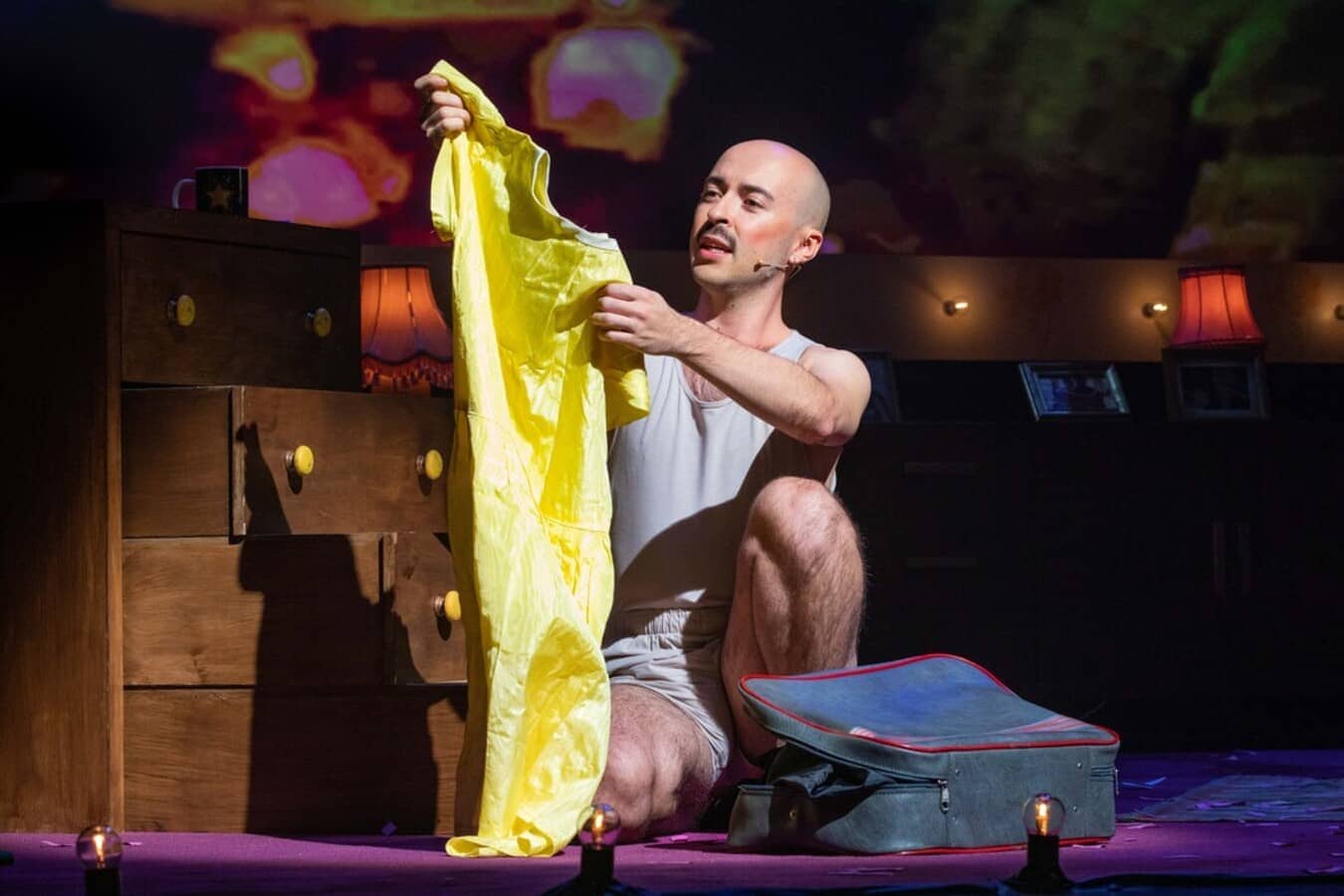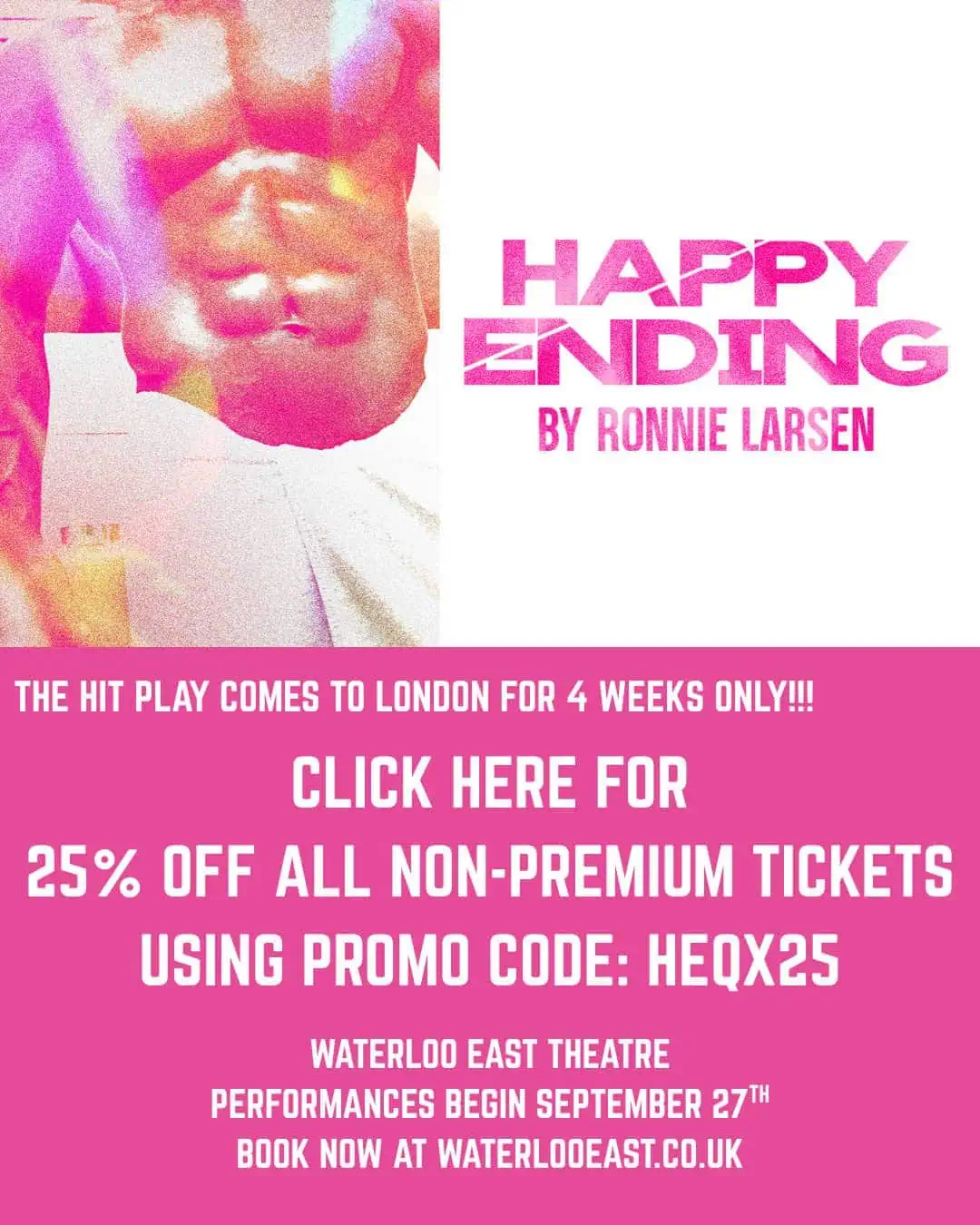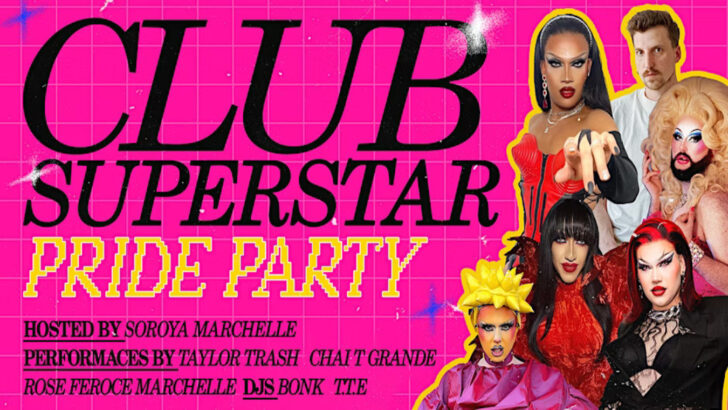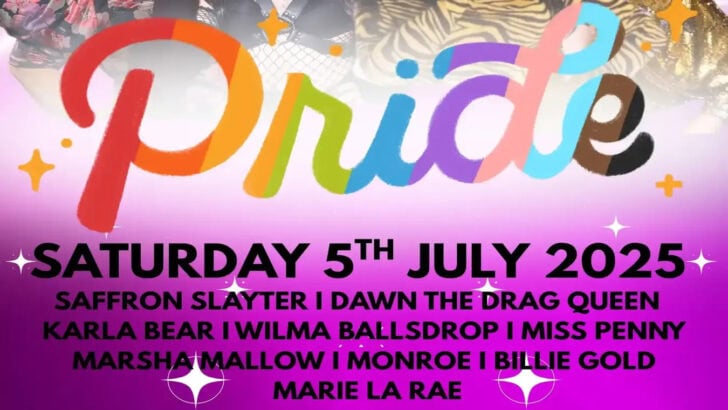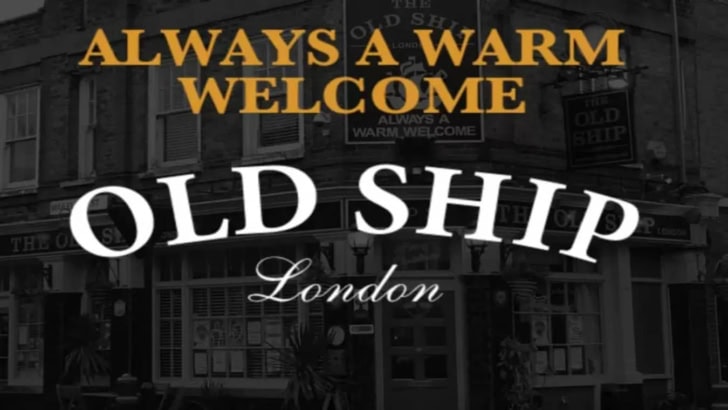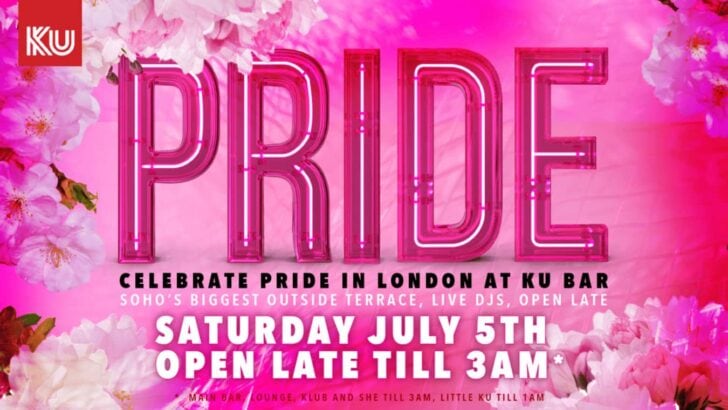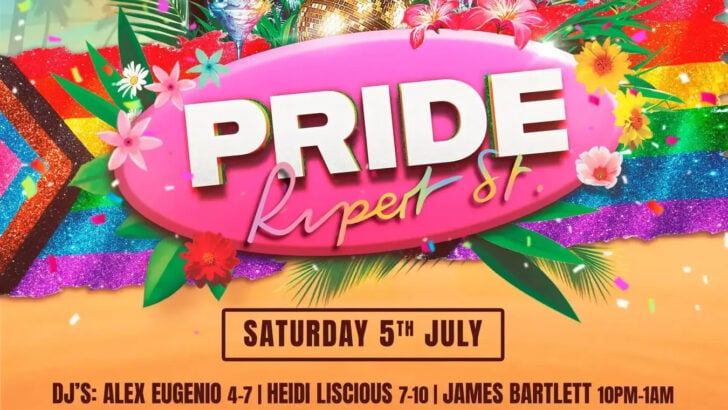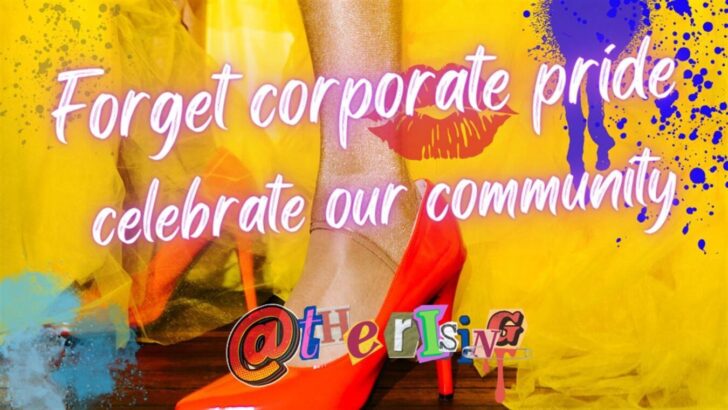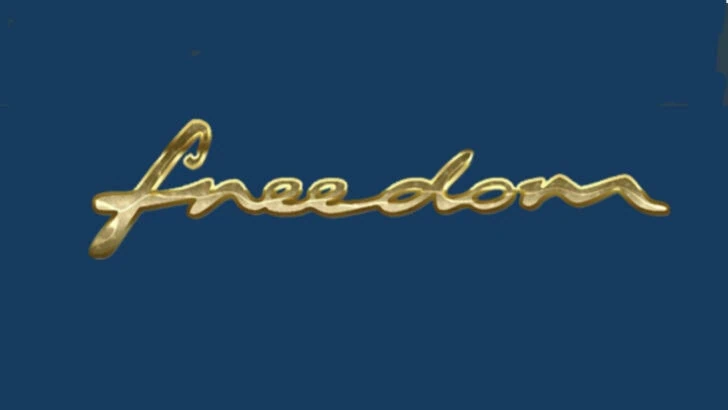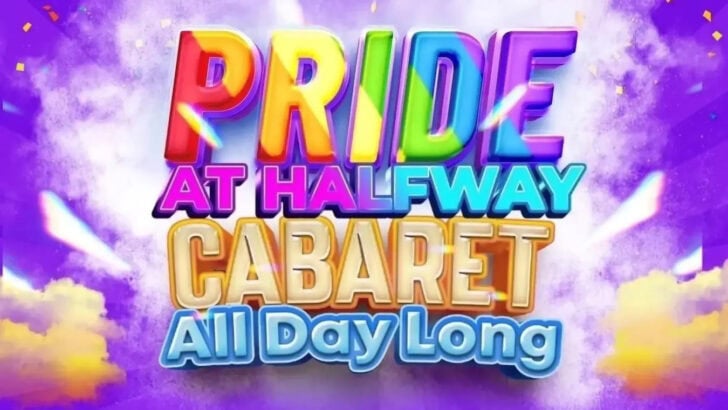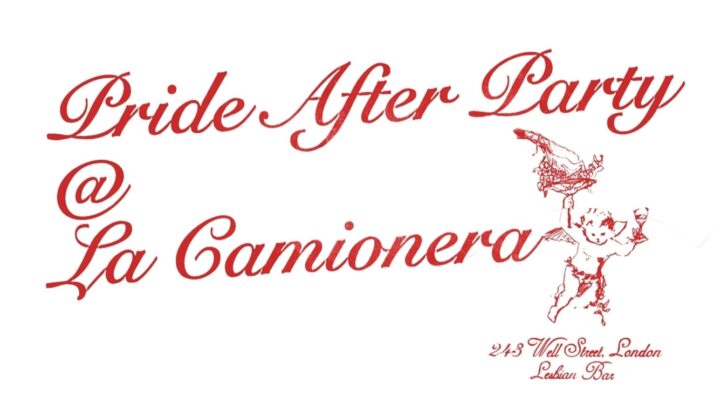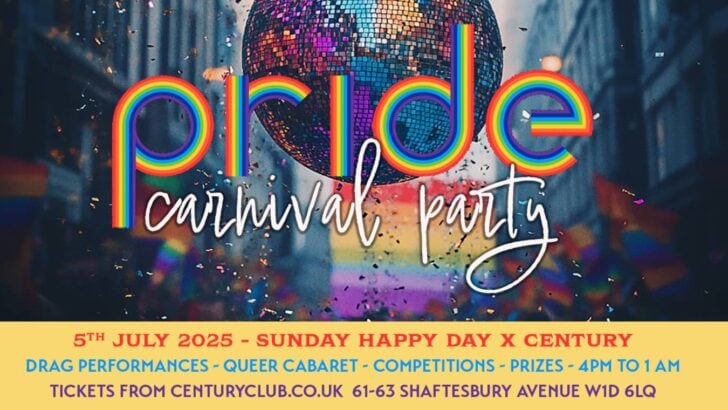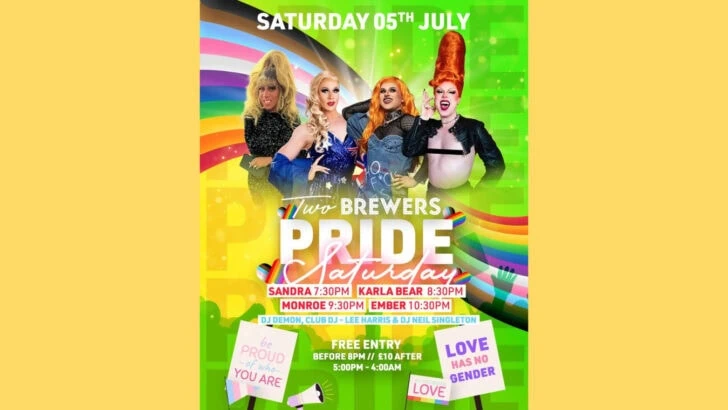QX interviews social media sensation Rob Madge, who is the writer and performer in the critically acclaimed production of My Son’s a Queer, (But what can you do?).
Rob Madge first attempted a full-blown Disney parade in their house for their Grandma at the age of 12. Rob donned wigs and played Mary Poppins, Ariel, Mickey Mouse and Belle, while his Dad was stage manager, sound technician and Goofy. Unfortunately, much went awry, and My Son’s a Queer, (But what can you do?) celebrates the joy and chaos of raising a queer child. This is the joyous autobiographical story of Rob Madge as they set out to recreate that parade – and this time, nobody, no, nobody is going to rain on it.
The show has debuted to critical acclaim and sold out at the Turbine Theatre and Edinburgh 2022. To the delight of fans, it then transferred to the Garrick Theatre. The production’s latest run opens at the Ambassadors Theatre, and ahead of that West End run, QX took the opportunity to interview Rob Madge about their show, My Son’s a Queer, (But what can you do?).
You put on these extravagant performances in your living room. Do you think that the term camp is an accurate way to describe them?
Everybody has their own definition of camp (as the 2019 Met Gala will attest). If we choose to say camp is synonymous with ostentatious, extravagant and theatrical, then absolutely. I know lots of us used to put on shows in the living room but these were, not to blow my own trumpet, next level. Who else had their neighbours bang on their front door because they thought the smoke machine billowing from the windows during Cinderella’s transformation scene was a fire burning down the house? (True story) Plenty have attempted to draw attention away from “camp” when it comes to the living room performances, as though we daren’t thrust any queer narrative on the notion of childhood, as though queerness and childhood live in opposition to one another. My living room shows are hard evidence of the fact that ostentatious, extravagant, theatrical and, yes, CAMP kids exist and long may they reign!
Do you think queer people generally are less inhibited as children?
I think human beings are less inhibited as children. Queerness as a label is placed onto individuals by external forces. Up until that point, every child is just as inhibited and as joyful as the other. The ostracism happens, and all of a sudden, there is a divide. “YOU are x. I am y”. I feel for those who had to quash their joy, and I implore them, whether queer or not, to recapture it. I think we’d be a lot happier if we never grew up. Feel free to grow old, just not up.
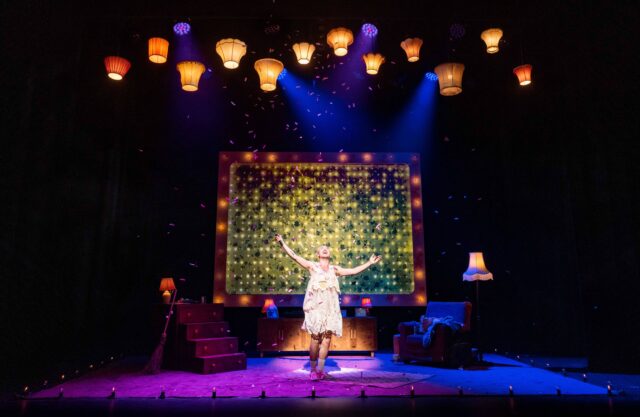
Did your parents pick up on the clues? Why do you think that was?
I suppose the big giveaway was when I wore a padded bra and red wig, wrapped a towel around my waist, thus resembling a mermaid tail and scooted through the hallway – a scooter represented the motion of swimming, you see. At one point in the show, I say, “the clues were there”. I almost say it through gritted teeth because I feel a need to assess what we assign as clues – this idea that we must associate material objects to one’s identity all in hopes of making sense of the world. A piece of fabric draped around the waist of a “boy” instantly rings an alarm bell: “Ah, he’ll fancy boys one day”. When, as a society, did we put these complicated codes onto such simple things? But yes, in short, I think my parents did pick up on the clues. They say they know before we do. An interesting idea which, yes, meant it came as no surprise when I came out to them, yet that still didn’t make my journey in coming out any easier. I didn’t know that they ‘knew’ – how could they have ‘known’ before I did? I hate when people trivialise it, as though wearing a wig as a child meant I didn’t even NEED to come out. I think we should put less pressure on clues. Everything will fall into place if you roll with it.
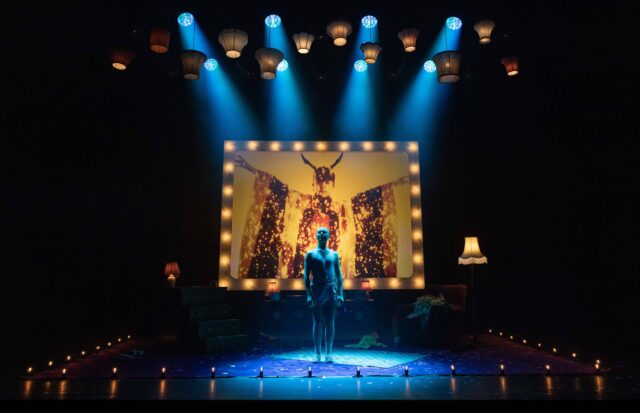
Years ago, people (my mother included) would listen to Kenneth Williams, for example, in Round The Horn, and not have a clue as to what lay behind the humour. It was just funny to them. Do you think general awareness of LGBTQ+ people has lessened the mystique of camp humour?
LGBTQ+ people will always have Mystique – she was so good on Season 2 of Drag Race. Truthfully, I think we will never lose that. We have always been on the margins, but there’s real fun in exploiting that! There’s fun in welcoming in audiences that aren’t part of the community, so they think it’s niche and exciting and other worldly, and then making them realise we’re actually no different to one another. If that mystique had lessened, I wouldn’t need to put the words “QUEER” in big pink letters in the title of the show. But it is absolutely still striking; otherwise, we wouldn’t be talking about it. I also believe that these comedians know exactly what they’re doing – Kenneth Williams is a fine example. Julian Clary is another. I was lucky enough to spend last Christmas with him doing panto, and he absolutely knows that the jokes he is making for a mainstream panto audience are explicitly queer. Yet they lap it up. I think because it’s safe to them, it’s within their realm of comfort. The minute we start to ask the important questions about queerness, people can turn off their light (like they used to in Take Me Out with Paddy McGuinness). However, I also believe audiences are firmly on side with the queerness of the comedy. I’m not sure they just find it funny; I think they’re acutely aware but in a very nudge nudge wink wink way. The next step is to make them listen to the important stuff as well. But we’ll always have mystique, thank God!
What inspired you to turn the whole experience in to a play?
I was sharing video footage of these living room shows online, and people would often say, “how lucky you are to have a supportive family”. I ultimately wanted to dissect this idea of “luck” and why, as queer people, we are taught to be grateful for what is simply given to non-queer people. Tragically, for many queer individuals, love comes with conditions. I felt a desperate need to interrogate why some might struggle in stretching their unconditional love to their queer family members. And I wanted to make people laugh.
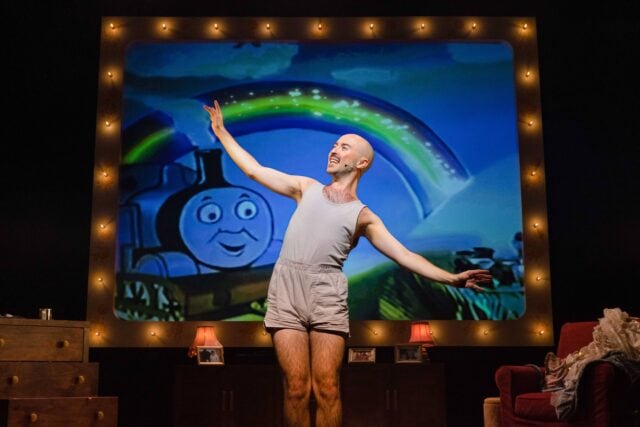
Have family members seen it? What has been their reaction?
My parents have. I take great pride in showing them off. They find the whole thing daft, overwhelming and hilarious, but they’re very humble. They have quickly become the subject of praise from strangers which is so lovely but we work hard to keep each other’s Brummy feet on the ground. I think we all appreciate each other a lot more because of it. I feel so fortunate that my normal was one of acceptance. I wish the same could be true for all families – I believe it can be one day.
You use the term queer in the title quite deliberately. What does the general use of the word queer mean to you today?
We seem to be at a point in time when the word “queer” is being hotly debated. I do not underestimate its history, how it has been used to oppress and how it can be a triggering slur for many. It’s also been reclaimed as a positive term for years now. There is nothing new in that. I use the word with all that history in mind and offer an alternative world where “queer” is not a slur but gives power. After all, words only have the definition we give them. In the world of My Son’s A Queer, the word is a compliment! Please, call me queer! It means I’m thriving! In the world of My Son’s A Queer, the word is worn as a badge of honour. It’s even a synonym for “normal”. I personally define queerness as unbridled joy, and if that were our normal, wouldn’t the world be a nice place to be? Of course, everyone is welcome to define words as they like, but I invite people to put their own power as human beings above any meaningless conglomeration of letters and take back the joy that was once taken. It belongs to you!
What is the one wish Rob Madge has for 2023?
Health, happiness and Series 2 of The Traitors. (I suppose that’s more than one wish, but Aladdin gets three, so it’s only fair!).
Tickets available here:
https://www.theambassadorstheatre.co.uk/shows/my-sons-a-queer-but-what-can-you-do
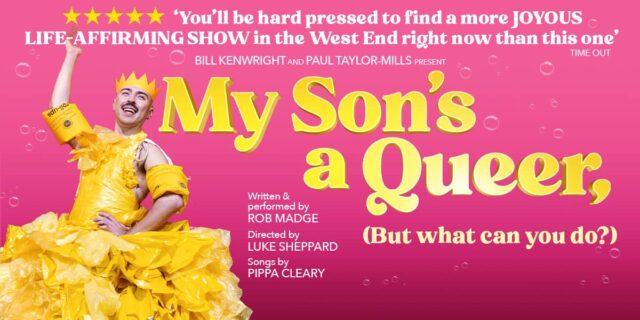
My Son’s a Queer, (But what can you do?) opens at the Ambassadors Theatre, on 1 February, with previews from 25 January, and runs until 18 March.
Ambassadors Theatre, West Street, London WC2H 9ND, United Kingdom.
